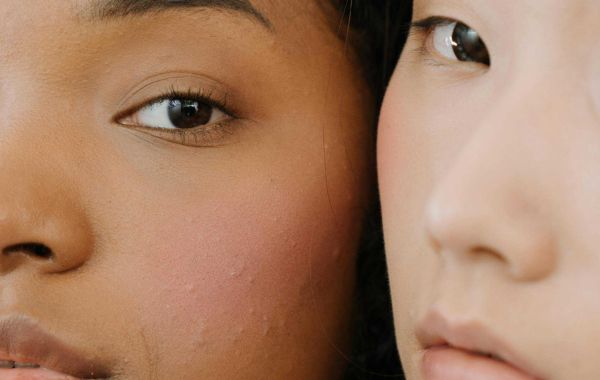Acne. It can strike fear in the hearts (and on the faces) of teenagers and young adults everywhere. While it's a normal part of growing up, those pesky pimples can definitely take a toll on your confidence.
This guide equips you with the knowledge to fight back against acne. We'll explore the causes, different treatment options, and helpful tips for clear, healthy skin.
What is Acne and Why Does it Happen?
Acne occurs when oil glands under your skin get clogged. This can happen due to several factors:
- Hormonal Changes: During puberty, your body ramps up androgen production. These hormones stimulate oil production, which can lead to clogged pores.
- Bacteria: A specific type of bacteria, Propionibacterium acnes (C. acnes), thrives in clogged pores and contributes to inflammation, causing those red, angry pimples.
- Dead Skin Cells: When dead skin cells don't shed properly, they can also contribute to clogged pores.
- Important to note: Acne is not caused by poor hygiene or diet alone, although these factors can play a minor role.
Types of Acne:
There are various types of acne, each with its own characteristics:
- Whiteheads: Small, closed pores filled with sebum (oil)
- Blackheads: Open pores clogged with sebum, appearing dark due to oxidation
- Papules: Small, red bumps caused by inflammation
- Pustules: Pus-filled pimples, a type of inflamed papule
- Nodules: Larger, solid, painful bumps
- Cysts: Deep, pus-filled lumps that can cause scarring
Combating Acne: Treatment Options
The good news: acne is treatable! Here are some common approaches:
- Over-the-Counter (OTC) Treatments: Many effective cleansers, gels, and creams are available without a prescription. These often contain ingredients like benzoyl peroxide to kill bacteria, salicylic acid to unclog pores, or retinoids to promote skin cell turnover.
- Prescription Medications: For more severe acne, a dermatologist (a skin specialist) may prescribe stronger topical medications, oral antibiotics to combat bacteria, or hormonal treatments (especially for women). In some cases, a combination of treatments may be recommended to target different aspects of acne. For instance, a topical retinoid might be combined with oral antibiotics for a more well-rounded approach.
- Acne Light Therapy: Blue light therapy can target bacteria and reduce inflammation.
Natural Remedies and Lifestyle Tips
While not a replacement for medical treatment, certain practices can help manage acne:
- Gentle Skincare Routine: Wash your face twice daily with a gentle cleanser and lukewarm water. Avoid harsh scrubs and products that contain alcohol or irritants.
- Moisturize: Using a non-comedogenic moisturizer (which won't clog pores) helps prevent dryness that can worsen acne.
- Diet: While there isn't a magic acne-fighting diet, some studies suggest limiting sugary and processed foods may be beneficial.
- Don't Pick!: Resist the urge to pop or pick at pimples. This can worsen inflammation and lead to scarring.
- Explore Natural Remedies: While not a substitute for medical treatment, some natural options like probiotics and tea tree oil have shown promise in reducing acne.
- Probiotics: These beneficial bacteria may help improve gut health, which some studies suggest might be linked to acne.
- Tea Tree Oil: Tea tree oil has natural antibacterial properties. However, it can irritate the skin, so dilution and patch testing are crucial.
Remember:
- Be Patient: It takes time to see results. Most treatments take at least 6-8 weeks to show improvement.
- Stick with it: Don't give up! Consistent use of your treatment plan is key.
- See a Dermatologist: If your acne is severe, painful, or not responding to OTC treatments, consult a dermatologist for personalized advice.
Dealing with Acne's Emotional Toll
Acne can affect your self-esteem. Here are some tips to cope:
- Focus on the Positives: Don't let acne define you. You are more than your skin!
- Talk to Someone: Confide in a friend, family member, or therapist if acne is taking a toll on your emotional well-being.
- Seek Support: School counselors or online communities for people with acne can provide additional support and understanding.








